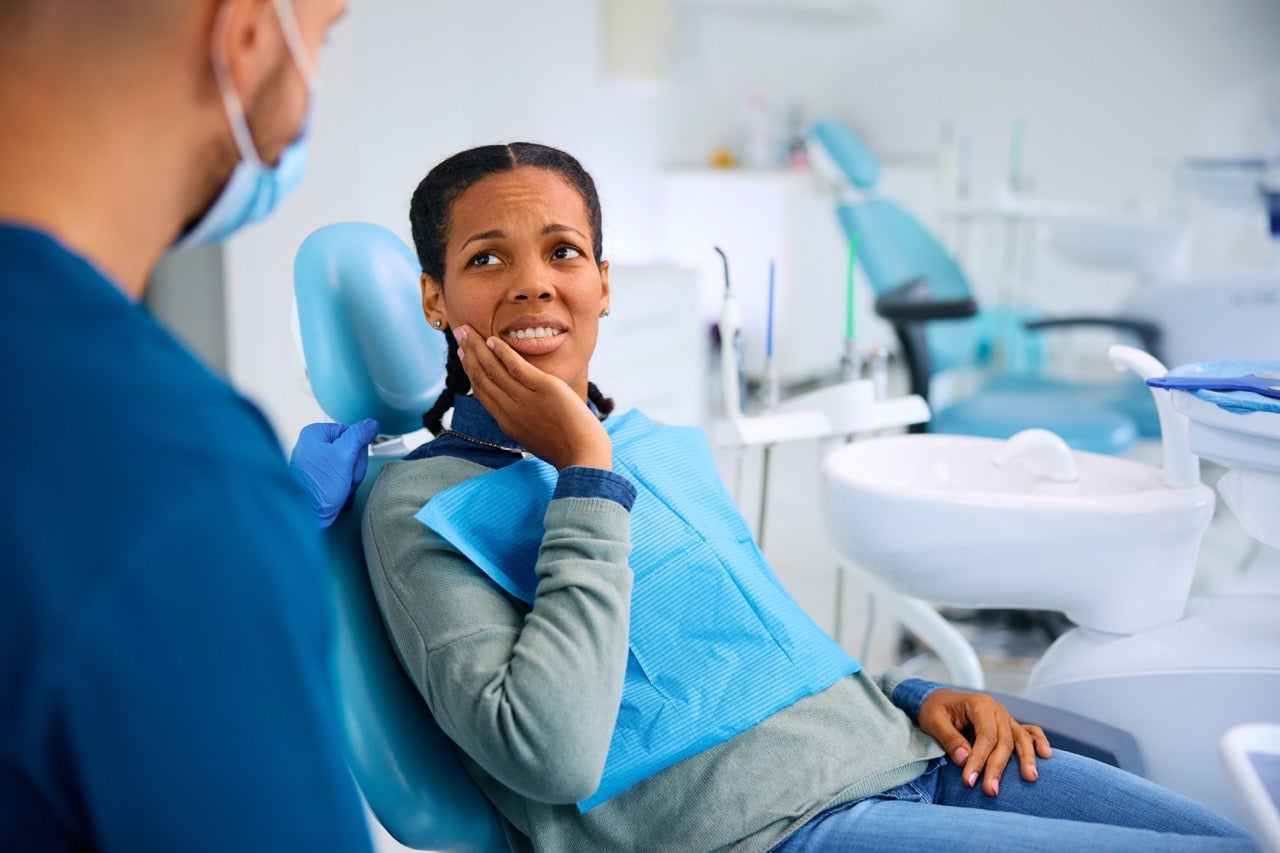Information Library
Start Reading
Headaches are a common complaint, affecting approximately one in six people in the United States. They’re often blamed on stress, dehydration, or poor sleep. But what if the source of your pounding head isn’t in your brain—it’s in your mouth? Can dental issues cause headaches? According to Penn Dental Medicine orofacial pain specialist Dr. Stefania Brazzoli, the answer is yes. Poor oral hygiene can lead to dental problems that contribute to headaches. Dr. Brazzoli explains the connection, diagnosis, and treatment options in this article and video.
 While oral hygiene itself is not a direct cause of headaches, it does contribute to conditions that result in headaches. Issues such as dental infections, tooth decay, temporomandibular joint (TMJ) disorders, or teeth grinding can lead to orofacial pain, which is discomfort concentrated in the face and oral cavity, encompassing the mouth, jaws, and other related structures. Orofacial pain can radiate and manifest as headaches.
While oral hygiene itself is not a direct cause of headaches, it does contribute to conditions that result in headaches. Issues such as dental infections, tooth decay, temporomandibular joint (TMJ) disorders, or teeth grinding can lead to orofacial pain, which is discomfort concentrated in the face and oral cavity, encompassing the mouth, jaws, and other related structures. Orofacial pain can radiate and manifest as headaches.
“One of the most common causes of orofacial pain is temporomandibular disorders,” Dr. Brazzoli shares.
Temporomandibular joint (TMJ) disorder is a condition that affects the jaw joint and surrounding muscles, causing pain, discomfort, and difficulty with jaw movement. Common causes of TMJ include:
Other causes of orofacial pain include:
 “We have to evaluate the patient as a whole,” Dr. Brazzoli explains. “We have to work in combination with different specialties at a multidisciplinary level to actually assess and evaluate our patients.” This may require:
“We have to evaluate the patient as a whole,” Dr. Brazzoli explains. “We have to work in combination with different specialties at a multidisciplinary level to actually assess and evaluate our patients.” This may require:
Poor oral health can lead to infections and inflammation in the gums, teeth, and jaw, which may subsequently contribute to headaches. Inflammation can cause blood vessels to dilate, including those in the head, resulting in headaches. And, chronic pain and discomfort can stress the body, inducing muscle tension and headache symptoms. “Muscle tension in particular can actually cause orofacial pain conditions,” says Dr. Brazzoli.
Effective management of chronic orofacial pain and related headaches generally involves a combination of treatments:
“Stress plays a major role when it comes to orofacial pain. It affects every aspect of our life,” Dr. Brazzoli states. It is a significant factor that can exacerbate orofacial pain and headaches. Stress can lead to teeth grinding, increased muscle tension, and poor posture, all of which contribute to the cycle of pain. To manage stress effectively:
 The link between poor oral health and headache disorders is clear. Through a combination that can include good dental care, pain management, physical therapy, and stress reduction, patients can effectively manage orofacial pain and associated headache conditions.
The link between poor oral health and headache disorders is clear. Through a combination that can include good dental care, pain management, physical therapy, and stress reduction, patients can effectively manage orofacial pain and associated headache conditions.
Your Penn Dental Medicine dentist can help ensure that you have the right information to relieve pain and enhance your overall health. Watch Dr. Brazoli’s video for complete details on the five key points covered here. (You can also check out her video on TMJ for more information.) To schedule an appointment, simply complete this form or call us at 215-898-8965.